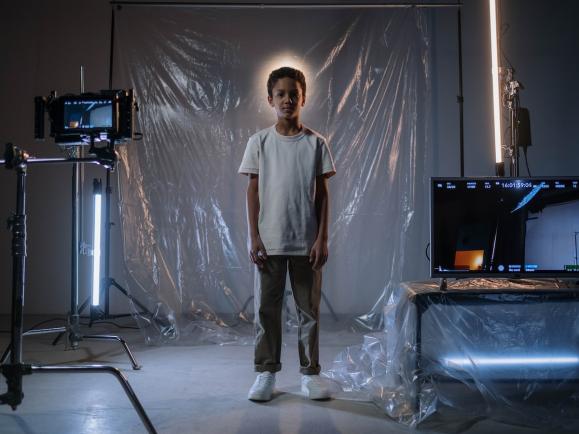
When Alex Nikolas was a 12-year-old child actor on Nickelodeon’s “Zoey 101,” she felt uncomfortable around Dan Schneider, the show’s creator. She said she remembered not liking being around him and not feeling safe around him. One of the core memories was that Schneider was typically on the other side of the curtain during her wardrobe fittings, where she would wear short skirts and clothing she felt were too revealing for her age.
Nikolas said Schneider kept Polaroid photos that the wardrobe staff took of her in these outfits. At the time, it wasn’t a red flag for her, but after moving on from the show and working on sets of different television shows, she realized Schneider’s behavior was abnormal. Nikolas is part of a new generation of former child actors who are speaking out about the lack of agency they felt they had as working children.
They argue that the current laws can’t protect young actors from the emotional, mental, and physical stress of working or being oppressed by parents or other adults in the industry. This harm can affect them for the rest of their lives. Sally Gaglini, an entertainment lawyer and author based in Massachusetts, believes that putting a child in front of a camera is a huge deal, adding that it’s not comparable to other extracurricular activities.
She says one example is that children are minors, so they can’t give legal consent to work, meaning it’s up to their parents to decide if being a working child is right for them, and the nature of entertainment contracts is binding. In several states, including New York and California, productions can get employment contracts involving court-appointed child actors, making them more challenging for a child to get out of. Companies that hire children will typically get parents to sign an agreement to cover costs if their child refuses or fails to perform, according to Gaglini.
Still, a more fundamental question is involved: Can a child and their guardians make a fully informed decision about working and what that will mean for the rest of the child’s life? Gaglini brought up the example that a patient can ask their doctor about possible risks before going into surgery. However, children depend on their parents to make the right choice for the child’s capacity for a productive life. American federal labor laws see most jobs as too oppressive for children. If you’re under 16 in the United States, the federal child labor terms in the Fair Labor Standards Act ban you from working “oppressive child labor,” defined as the employment of children under 16 in most jobs.
As a child under 16, you can’t work in transportation, construction, or manufacturing. You can’t unload goods off a truck or repair equipment, but you can work in entertainment. Legislators in the late 1930s didn’t consider child acting oppressive, but should it be now, considering the adverse effects of this underage labor that fuels billion-dollar industries? Some child actors have positive experiences, but is it worth the risk for those who don’t? For child performers, working in the spotlight while young often comes at an immense cost to themselves, not to mention the sacrifice of a normal childhood.
In her recent memoir, “I’m Glad My Mom Died,” former child star Jennette McCurdy of Nickelodeon’s “iCarly” recalled the miserable aspects of being a child actor, from drinking Gatorade while feverish so she could perform to dealing with a lewd authority figure on set that she calls “The Creator,” assumed to be Schneider. In her memoir, McCurdy shares that The Creator gave her an unwanted massage and was pressured to wear a bikini because it was what he wanted.
After reading “I’m Glad My Mom Died,” what becomes more apparent is that there are child actors who think that early-in-life wealth and fame come at a steep cost, a price the general public doesn’t realize kids pay. As 1980s teen star Wil Wheaton of “Stand By Me” put in “Showbiz Kids” about negative reviews he received as a teen, people don’t realize they’re talking about a child who’s giving up their childhood to be in this thing you’re reviewing. So the next time you watch a child actor on screen, ask yourself, “Do they want to be there? Are they getting enough sleep? Is anyone asking how they’re feeling?”

